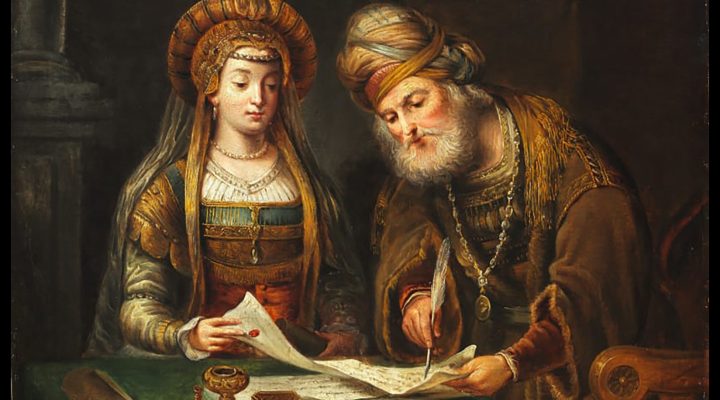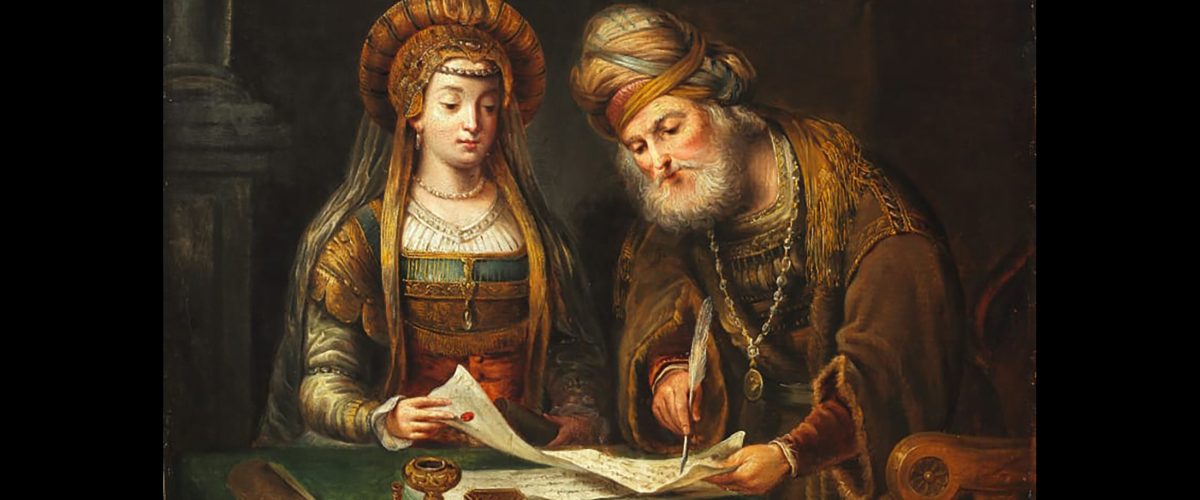As we reflect on the state of our nation after the results of the 2024 election, we are confronted with a renewed sense of division, uncertainty and urgency. Donald Trump’s rise to power once again has raised profound questions about the direction of our country, its values, its character and its future.
In such a time as this, many Christians may be asking, “What is our role in this moment? How can we respond to a political landscape that seems to push justice, truth and compassion to the margins?”

Rosaly Guzman
For those of us who are seeking to faithfully follow Christ in a world that often is hostile to his kingdom, we turn to Scripture for wisdom. One verse that comes to mind is Esther 4:14, where Mordecai challenges Queen Esther with these words: “For if you remain silent at this time, relief and deliverance for the Jews will arise from another place, but you and your father’s family will perish. And who knows but that you have come to your royal position for such a time as this?”
This verse, spoken in a moment of peril for the Jewish people, is not just a call to Esther; it is a call to all of us as Christians today. The context of Esther’s story is one of profound injustice. In the face of evil, God raised up Esther, a woman of faith, who was placed in a position of power, not for her own benefit, but for the purpose of bringing justice, saving lives, and standing against oppression.
“How do we stand for justice, truth and compassion when our political landscape feels increasingly polarized and hostile?”
In the aftermath of the 2024 election, we too find ourselves living in a moment fraught with similar challenges. Injustice persists in various forms, whether it’s racial inequality, economic disparity, a disregard for human dignity or the spread of misinformation. With Trump’s resurgence into power, many fear the erosion of democratic institutions, the sidelining of truth and a deepening disregard for compassion and empathy in national leadership.
As Christians, how are we to respond? How do we stand for justice, truth and compassion when our political landscape feels increasingly polarized and hostile?
Here are a few reflections on how Esther’s example can guide our response.
One of the key themes in the story of Esther is her willingness to speak up at great personal risk. When Mordecai implored her to intervene on behalf of the Jewish people, she was initially reluctant, aware that speaking out could cost her position, her safety and even her life. Yet Mordecai’s words were a reminder that her royal position was not merely for her own benefit. It was for a purpose: “for such a time as this.”
In our own time, we are called to speak up for those who are marginalized, those whose voices are often drowned out by the noise of political power struggles. Whether it’s advocating for the poor, the immigrants, the racial minorities or the unborn, Christians are called to be champions of justice. Justice, in the Bible, is not just a matter of legal fairness; it’s about restoring what is broken and standing in the gap for those who are oppressed.
In the face of political turmoil, we must be willing to stand against systems that perpetuate injustice, even if doing so makes us unpopular or places us at odds with the prevailing powers. As Esther was prepared to risk everything for the sake of her people, so too must we be willing to take risks in the fight for justice.
“In the face of political turmoil, we must be willing to stand against systems that perpetuate injustice.”
Another crucial lesson from Esther’s story is her courage to confront difficult truths. The political climate today is marked by a rampant spread of misinformation, disinformation and half-truths, particularly in the wake of Trump’s rhetoric. As Christians, we are called to be people of truth, grounded in the word of God, which is the ultimate source of truth.
In this post-truth world, the responsibility to speak and live the truth becomes even more urgent. We cannot remain passive or indifferent to the lies that circulate in our public discourse, especially when those lies fuel division, hatred and injustice. As followers of Jesus, we must be diligent in upholding truth, not only in our words but in our actions.
In our interactions with others, especially in the digital age, we must be careful not to perpetuate falsehoods, even when it’s tempting to do so in the name of political allegiance. Our commitment to truth must transcend party lines and ideologies. Just as Jesus is the way, the truth and the life (John 14:6), we too are called to reflect his truth in all areas of our lives.
Compassion is a core value in the kingdom of God. Jesus constantly demonstrated compassion to those who were suffering, whether it was healing the sick, feeding the hungry or comforting the broken-hearted. Compassion is more than a feeling; it is an active response to the needs of others. In today’s political climate, where cruelty and callousness can be seen in policies and attitudes toward immigrants, the poor and racial minorities, Christians must be voices for mercy and empathy.
“God has placed us here to be agents of God’s justice, truth and compassion.”
The rise of a leader who often displays a lack of compassion toward the marginalized should not lead us to adopt a similar hardness of heart. Instead, we are called to demonstrate radical love and compassion, reaching out to the hurting, standing against dehumanizing policies, offering hope to those in despair.
Finally, the story of Esther shows us the importance of prayer and seeking God’s guidance. Before she made her bold move, Esther called for a fast and sought God’s direction. In this moment of political uncertainty and social unrest, it is crucial that we as Christians remain prayerful. We must seek God’s wisdom on how to act justly, love mercy and walk humbly in our times of crisis.
The call to action in our world today is clear. Like Esther, we have been placed in our respective spheres of influence “for such a time as this.” We are called to speak up for the marginalized, uphold truth in the face of lies, show compassion to the hurting and seek God’s wisdom in all things.
In this moment of political upheaval, we must remember our ultimate allegiance is to the kingdom of God, and it is to this kingdom that we must give our lives in service, justice and love. May we be faithful in this calling, knowing that even in the darkest times, God is sovereign and has placed us here to be agents of God’s justice, truth and compassion.
Rosaly Guzman is a teacher, speaker and life coach. She holds a master’s degree in theology and is working on a doctoral degree in ministry. She serves at Crosslife Church in Oviedo, Fla,, in the women’s ministry.


